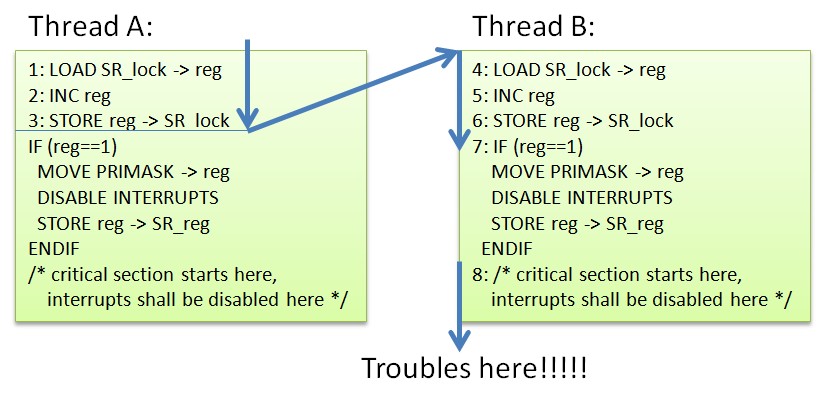
A perplexing software bug recently emerged when a critical section - code designed to prevent multiple threads from executing simultaneously - failed at its core purpose. The incident, which caused system crashes, revealed an intriguing flaw in thread synchronization logic.
The issue manifested in a Windows system component where two threads unexpectedly entered the same protected code block, leading to a crash when both attempted to register a handler. While critical sections typically ensure exclusive access, this one had a subtle defect that rendered it ineffective.
Investigation revealed the root cause lay in how the critical section was initialized. The code used a "run once" initialization pattern, but due to an incorrect return value, the initialization was deemed unsuccessful each time. This meant that instead of initializing once as intended, the critical section was re-initialized on every access - effectively resetting it and allowing multiple threads to enter.
"The code was reducing itself to reinitializing the critical section on each entry, making it behave as if unowned," explained the investigating engineer. "When multiple threads hit this code path, each would initialize a fresh critical section and gain entry, defeating the whole purpose of the protection."
The bug stemmed from a common assumption in Windows driver development, where return codes typically follow the NTSTATUS convention. However, in this case, the initialization function needed to return a boolean value instead.
The fix proved remarkably simple - changing the return value to TRUE resolved the issue. However, engineers noted that the entire approach could be simplified by using an SRWLOCK mechanism instead, which provides the same protection with less complexity.
This case highlights how subtle implementation details in concurrent programming can lead to serious system issues. It also demonstrates why thorough understanding of API contracts is critical when dealing with thread synchronization primitives.